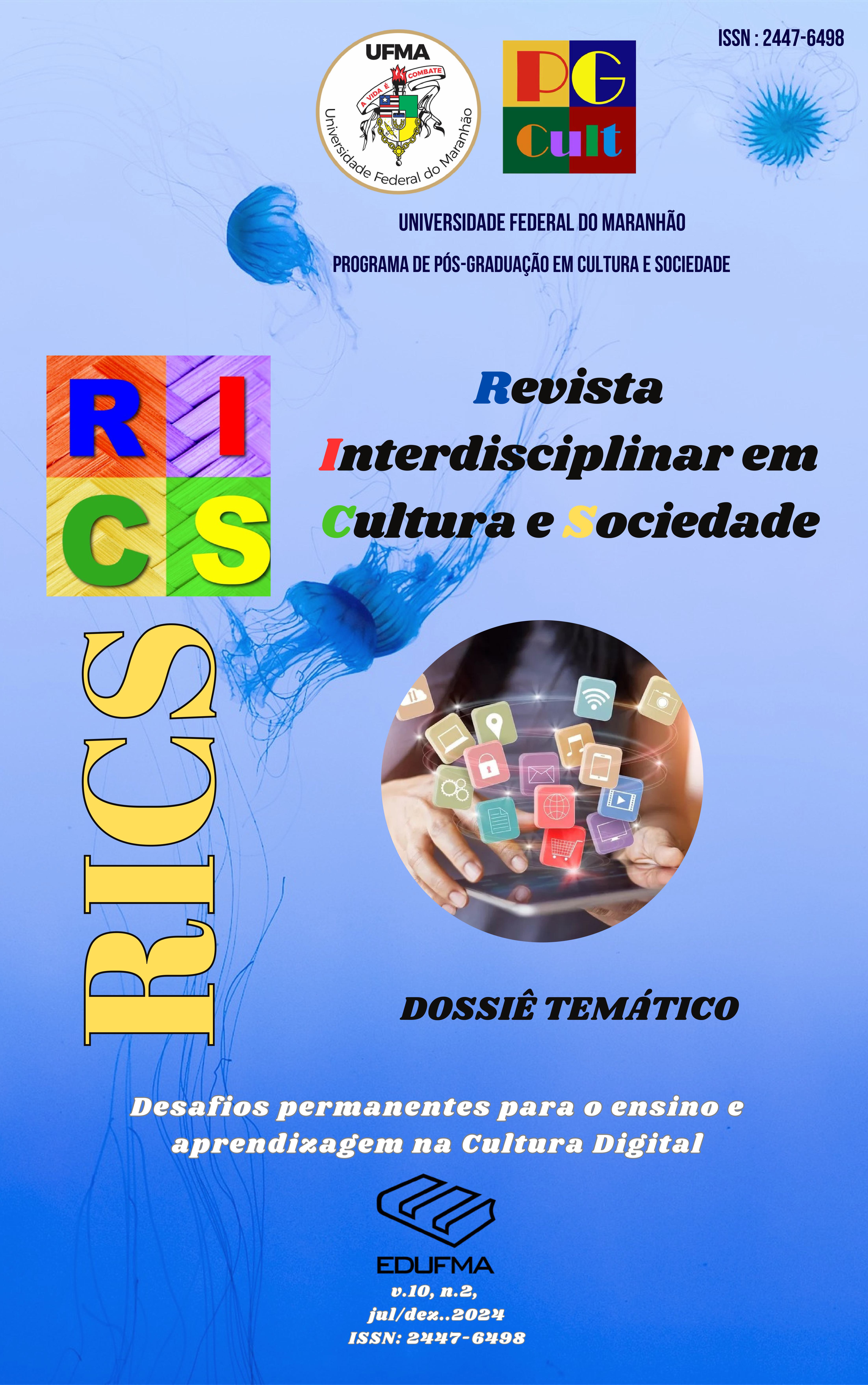Ciências Sociais e os Estudos sobre Cultura Digital: sua contribuição para pensar a sala de aula da educação básica
DOI :
https://doi.org/10.18764/2447-6498.v10n2.2024.23Mots-clés :
Cultura Digital, Internet, Juventude, Escola, Redes Sociais, SubjetivaçãoRésumé
O presente artigo visa refletir como o uso das redes sociais pelos jovens influenciam na dinâmica das aulas de sociologia na escola de nível médio, diante das transformações digitais que criaram uma nova relação entre escola, cultura digital e processos de ensino-aprendizagem. Buscou-se compreender como as tecnologias de informação e comunicação são apropriadas pelos estudantes conectados e a influência da cultura digital no espaço escolar. Nesse sentido, propomos um olhar para além do grupo escolar, refletir esse jovem que também busca informações nas redes sociais, ao procurar compreendê-los como sujeitos sociais que constroem um determinado modo de se relacionar com uma cultura escolar presente na escola e com uma cultura digital presente nas redes sociais, ou seja, refletir quem são esses jovens que frequentam a escola e as aulas de sociologia, e que buscam interação, socialização na escola e nos cybersespaços. Realizamos uma oficina trabalhada na trilha de sociologia, com o tema movimentos sociais e direitos humanos. A oficina teve como objetivo acessar às discussões no campo da sociologia e antropologia do digital, de modo a conduzir debates informados no ambiente escolar que desenvolva o multiletramento, trabalhando a associação entre os letramentos, científico, digital e pedagógico.
Téléchargements
Références
BRASIL. Ministério da Educação. Base Nacional Comum Curricular. Brasília: MEC, 2018.
CASTELLS, Manuel. A sociedade em redes - Economia, Sociedade e Cultura, Volume I, 6º ed. Paz e Terra, Rio de Janeiro, 2002.
DAYREEL, Juarez. O Jovem Como Sujeito Social, Revista Brasileira de Educação Set /Out /nov. /Dez 2003 No 24.
DALLARI, Dalmo de Abreu. Direitos Humanos e Cidadania. 2. ed., São Paulo: Moderna, 2004.
FONTES, Barbara de Souza. Entre o “chão da escola” e a universidade: a antropologia nos manuais didáticos de sociologia. Tese (Doutorado) – Universidade Federal do Rio de Janeiro (UFRJ), Instituto de Filosofia e Ciências Sociais (IFCS), Programa de Pós-Graduação em Sociologia e Antropologia (PPGSA), 2019.
GOHN, Maria da Glória. Movimentos Sociais e Redes de Mobilizações Civis no Brasil Contemporâneo. Petrópolis, RJ: Vozes, 2010.
LUANDA, Sabalo João. A Influência das Redes Sociais na Educação da Juventude: Vantagens e Desvantagens, Revista Evolução Ano IV-Nº45 – outubro de 2023. www.primeiraevolucao.com.br
MACHADO, Mônica. Antropologia Digital Para as Humanidades Digitais, Z Cultural Revista do Programa Avançado de Cultura Contemporânea.
NASCIMENTO, Leonardo F. Sociologia Digital: uma breve introdução. – Salvador: EDUFBA, 2020.
SITE:
https://agenciabrasil.ebc.com.br/geral/noticia/2023-10/pesquisa-mostra-que-95-das-criancas-e-adolescentes-acessam-internet. Acesso em: 22 de novembro de 2024
Téléchargements
Publié-e
Comment citer
Numéro
Rubrique
Licence
(c) Tous droits réservés Revista Interdisciplinar em Cultura e Sociedade 2024

Cette œuvre est sous licence Creative Commons Attribution 4.0 International.

Este trabalho está licenciado com uma Licença Creative Commons Atribuição 4.0 Internacional. Os autores da Revista Interdisciplinar em Cultura e Sociedade mantêm os direitos autorais.


















